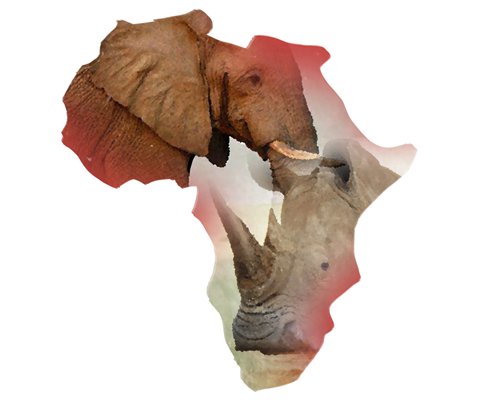
Illustration: Liu Rui/GT
When Chinese business communities first arrived in Africa, they never thought seriously about wildlife conservation issues. "It is just about animals, how important could this be?" they thought. Many Chinese businessmen who have been in Africa for more than a decade told me how buying ivory and eating wildlife were normal in the old days.
But now the situation is totally different. "Wildlife conservation, skills transfer and youth employment are our top three public diplomacy focuses," a Chinese diplomat in Kenya told me one time.
Research by wildlife conservation NGOs indicates that in China, the percentage of people who know about wildlife conservation issues - like elephants being killed to take their tusks for ivory - is very low. Fewer than 1 percent of Chinese people would have actually seen ivory in China, and some are even surprised there are legal ivory sales in China.
The situation in Africa is totally different. According to research, Chinese in Africa have extraordinary exposure to the illegal wildlife trade. In some countries, when governments did not pay much attention to the ivory trade, almost all Chinese would buy ivory trinkets - at least a bangle. Eating wild animals such as pangolins, antelopes and turtles was common, especially for Chinese construction workers who camp near wildlife habitats.
Few Chinese working and living in Africa would claim to be innocent of knowing where the wildlife products come from, and how illegal it is. Despite knowing ivory comes from slaughtered elephants and that pangolins are protected, Chinese in Africa did not say no due to three reasons: first, growing up in China and being less educated, they are not very conscious of wildlife conservation and why it is important. Lots may think: "Humans still have challenges, who cares about animals?" Second, wildlife products are significantly cheaper in Africa than in China. An ivory bangle in Africa could be 100 times cheaper than in China, which creates strong temptation for Chinese to buy them. Many Chinese in Africa have told me that they bought ivory because everyone else was doing it and it was so cheap.
Third, the law enforcement was weak, both in Africa and in China.
But these "animal problems" finally led to Chinese people's problems in Africa. Widespread media coverage of Chinese nationals being arrested over their involvement in the ivory and rhino horn trade creates a negative image of Chinese in Africa, and Chinese people can feel it.
"I was at a bar and a white guy shouted at me: you Chinese come to kill our rhinos, go back to your country!" Many Chinese businessmen in Africa can recall such instances.
"Facing a lady who angrily shouted at me 'You killed our elephants, I'll kill your pandas' made me feel so embarrassed." Many Chinese feel shame under this situation.
Losing face is just the beginning. In some African countries, wildlife conservation was able to create certain "anti-China sentiment." At the end of 2016, a few cases of Chinese arrested with rhino horns led to an open letter from NGOs to the Chinese Embassy, and Chinese in Namibia were accused of creating rhino poaching in the country. The conflict soon involved money laundering, tax evasion, low-quality products, and labor exploitation by Chinese businesses. Chinese investors in Namibia had to go through several months of intense scrutiny from government officials over their dealings.
More and more Chinese government officials and Chinese businesspeople have realized wildlife conservation should be addressed properly as it damages the sustainable development of Chinese business in Africa.
The Chinese Embassy in Tanzania organized a "Walk for Elephants" in January 2017, hoping to engage Chinese communities away from the illegal wildlife trade and to demonstrate to Africa that Chinese people also care about wildlife conservation issues. The Chinese Embassy in Namibia has organized donations from Chinese companies and set up a China-Namibia wildlife conservation fund and other embassies and business associations have done the same.
While labor conflicts are much more difficult to resolve, wildlife conservation might indeed be an opportunity to reshape China's image in Africa and build its soft power. However, due to communication issues and historical perceptions about Chinese people, changing the image of Chinese in Africa regarding wildlife conservation might not be so easy.


